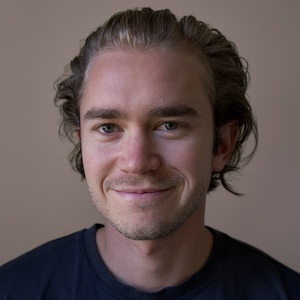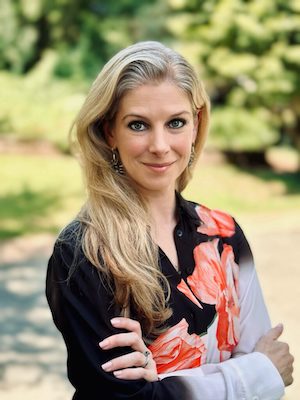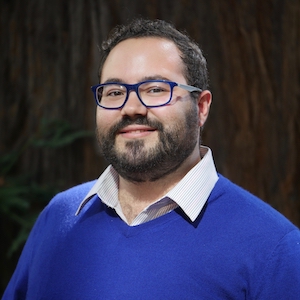The National Academies of Sciences, Engineering, and Medicine and Schmidt Sciences have awarded their top annual prize for early career science journalists to Zack Savitsky, a 2022 graduate of UCSC's Science Communication Master's Program, for his richly reported feature stories in Science and Quanta Magazine.
The award, part of the Eric and Wendy Schmidt Awards for Excellence in Science Communications, carries a $40,000 prize. Savitsky will receive the honor during a workshop in Pasadena, Calif., December 4-6.
Savitsky's award highlights a fall season of prominent national prizes for SciCom alumni. Savitsky himself will receive a second major award from the American Geophysical Union (AGU), recognizing his news reporting in Science. Nadia Drake, class of 2011, will join Savitsky in receiving a journalism prize from AGU, for her in-depth feature reporting in National Geographic. And Rodrigo Pérez Ortega, class of 2019, has earned the prestigious Science-in-Society Award from the National Association of Science Writers (NASW) for his work as a staff reporter at Science.
Savitsky is a freelance journalist currently based in Berlin, Germany, on a multimedia science journalism fellowship. He received the Schmidt Award for three features published in 2023: "In a Fierce Desert, Microbe 'Crusts' Show How Life Tamed the Land," reported from Chile for Quanta Magazine; "Lifting the Veil," describing forefront laboratory research to model the atmospheres of extrasolar planets, for Science; and "The Quantum Phantom," a century-old mystery relevant to today's quest for quantum computers, also for Science.
His prize carries this citation from the judges: "Zack Savitsky's excitement jumps off the page as he seeks to answer some of humanity's most profound questions, such as how life started on Earth, whether we're alone in the universe, and how we can wield nature to our will. By combining scientific discovery with personal stories, he weaves together captivating narratives with informative science content, making his work widely accessible. Savitsky's writing is brilliant, intriguing, and deeply memorable."
Savitsky joined the SciCom program after earning his B.S. in public relations, with a minor in physics, from the University of Florida. He reported for the San Jose Mercury News as part of his training in Santa Cruz, then spent a year as a journalism intern at Science in Washington D.C. and Quanta in New York City before embarking on his freelance career.
"I am incredibly grateful to the UCSC SciCom program for providing me with the tools to pursue my dream job," Savitsky says. "The program's supportive staff and instructive coursework have helped me to navigate the choppy seas of science journalism."
In December, Savitsky also will receive the David Perlman Award for Excellence in Science Writing—News from AGU for his article "Magnets wipe memories from meteorites, erasing billion-year-old data," published in Science. "The story exemplified going the extra mile combining science with impeccable storytelling," the judges wrote.
Drake will receive the Walter Sullivan Award for Excellence in Science Writing—Features for "The Alien Moon Shot" (subscription required), reported from Norway's Svalbard archipelago for National Geographic. Drake, a freelance journalist based in Charlottesville, Virginia, describes NASA's quest to detect life within the hidden waters and exotic icy crusts of certain moons orbiting Jupiter and Saturn—starting with tests in remote environments on Earth that might mimic some of those conditions.
"Through meticulous on-the-ground reporting, including rappelling into remote caves and exploring frigid ocean depths, she brought the search for extraterrestrial life down to Earth with humor and suspense," the judges wrote. "Nadia's skillful writing conveyed the challenges and excitement of scientific fieldwork, showcasing her ability to merge scientific rigor with engaging storytelling."
Her award, and Savitsky's, carries a cash prize of $5,000, to be conferred on December 11 in Washington D.C. during AGU's annual conference. It marks the first time Santa Cruz graduates have swept both the news and feature categories in AGU's awards.
Pérez Ortega was recognized by NASW in the Science Reporting category for his article in Science, "Should beetles be named after Adolf Hitler?" The story reviews efforts by zoologists and ecologists—controversial in many circles—to rename species of animals and plants whose scientific names are now deemed offensive.
"In the U.S., we have recently undergone a reckoning about honoring those whose actions are no longer in line with contemporary ideals—who gets to have their name on a building, or a statue commemorating their legacy?" the judges said. "Science is not immune to those questions. And, as Rodrigo Pérez Ortega gracefully reports, whom we choose to name a species after is at the forefront of that debate."
Pérez Ortega reports on science, including diversity in STEM, from his home in Mexico City. His award carries a prize of $2,000, to be conferred on November 10 at the ScienceWriters2024 conference in Raleigh, North Carolina.
Zack Savitsky wins top national award for early career science journalists
The recognition for Savitsky, class of 2022, is among several major prizes received this fall by graduates of the Science Communication Master's Program
October 25, 2024
By Robert Irion



